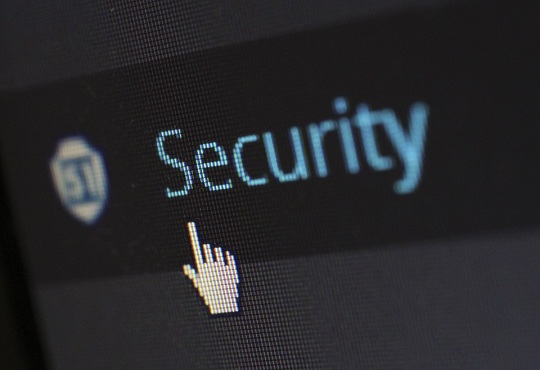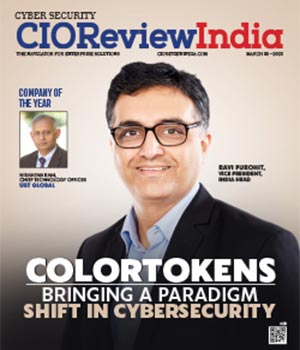
Phishing, Sextortion, and Other Scams. How Can Everyday Users Protect Themselves?
CIOReview Team | Tuesday, 28 May 2019, 04:23 IST
 As the number of internet users is growing, there are more and more scammers preying in the muddy waters of cyberspace.
As the number of internet users is growing, there are more and more scammers preying in the muddy waters of cyberspace.
There are many different data-stealing actions that hackers of this kind may take. Some of the most common privacy violations include phishing, sextortion, and identity theft.
While there’s no reason to panic, every internet user has to take all the necessary measures to protect themselves online.
In the rest of this article, you can learn more about those issues and possible solutions.
Protect yourself against phishing
According to the definition provided by Techopedia, phishing is a “fraudulent act of acquiring private and sensitive information, such as credit card numbers, personal identification and account usernames and passwords.”
In other words, it’s a cyber attack with an aim to obtain other people’s personal data to gain financial or any other benefits.
The primary tool in gathering this private data is a fake email address, which looks like a genuine one. The main purpose of creating such an email address is to make victims believe that they’re communicating with a trusted person or brand. This email in disguise serves as the major penetration tool.
Once the receiver clicks on the email or the conspicuous material it contains, their computer gets infected by the phishing malware in question.
After that, the sender, i.e., the perpetrator can gain access to various personal information, such as credit card details or social media accounts.
What’s more, they can steal data from the computer they’ve hacked, as well. This is where it comes to frequent cases of sextortion.
Sextortion – how to avoid getting blackmailed
The term “sextortion” is older than the internet, but this crime has blossomed in the Web era.
When a perpetrator succeeds in phishing someone’s personal information or steals their private data, they can easily blackmail them.
The type of blackmail depends on the sort of data that the scammer comes across.
If there are any sexually compromising materials on the device attacked by hackers, they can use them to blackmail the victim. In case the blackmailed party doesn’t pay the requested sum, the phisher is threatening to publish those materials online.
The risks of sextortion running high
According to the data published by Computer Weekly, one in ten phishing attacks results in sextortion.
So, even though it might sound a bit far-fetched, anyone can become a victim of sextortion.
For instance, tricksters aim at people in the areas where the internet is getting more users. In the last few years, there have been more and more sextortion cases in India. Simply put, the number of people using the internet is growing, and not all of them are aware of such threats.
In May 2018, the Independent revealed a story about five men who killed themselves due to online sextortion. Those victims were approached by criminals who introduced themselves as attractive individuals. After that, they persuaded the victims to perform a sexual act in front of a web camera.
Those targets were later blackmailed into paying a certain sum of money.
This is a school-case scenario of naïve people tricked by professional conmen. The latter use their knowledge of technology to scam gullible people who don’t know how to protect themselves on the internet.
Tips to protect against phishing and sextortion
Even though online scammers are becoming more and more sophisticated, it’s still possible to prevent them from committing their attacks.
First and foremost, internet users should always use original software. Downloading illegal software significantly increases the risk of getting infected by malware that can enable phishing and data leakage.
Moreover, it’s necessary to keep all the malware and antivirus tools updated. The easiest way to do that is to enable automatic updates on these programs. That way, they’ll update in accordance with the manufacturer’s recommendations.
Also, if you’re living in the part of the world where the number of sextortion cases is on the rise, think about some additional protective actions. For instance, people in India use a VPN to increase their level of protection against phishing. Those private networks prevent scammers from entering a certain online area at affordable rates.
Apart from that, it’s vital for people to change their online habits. It’s recommended not to click on spam emails, even though they might seem to be coming from familiar sources.
On the other hand, it’s important not to read emails that come from unreliable sources or click on the materials sent in them.
Just like in everyday life, people need to make sure they don’t expose themselves to scammers.
Conclusion
Phishing and sextortion are two burning issues that bother the online community. If someone’s data is stolen, they can be exposed to public embarrassment or blackmail.
The two most efficient strategies against these threats are the use of genuine, updated software and improved protection habits.
It’s more difficult for hackers to enter people’s personal computers if they’re properly protected.
Finally, internet users need to be careful about the things they do online and people they communicate with.
All these measures will significantly reduce the risk of being exposed to phishing and sextortion.
CIO Viewpoint
From VPNs to Zero Trust: The Transition to a...
By Shankar Venkatesan, Senior IT Leader, Avalon Technologies
The Cyber Security Spar in Integrating IT and...
By Vimal Goel, CIO, HPCL-Mittal Energy
Towards Cyber Resilience: A Data-Centric...
By Puneet Gupta, Vice President & Managing Director, NetApp India/SAARC
CXO Insights
Emerging Trends, Challenges & Future Prospects...
By Sujoy Brahmachari, CIO & CISO, Rosmerta Technologies
Exploring Data-First Security and Automation in...
By Maheswaran S, Country Manager - S.Asia, Varonis Systems
Securing IT-OT Converged Infrastructure




.jpg)
.jpg)
.jpg)







